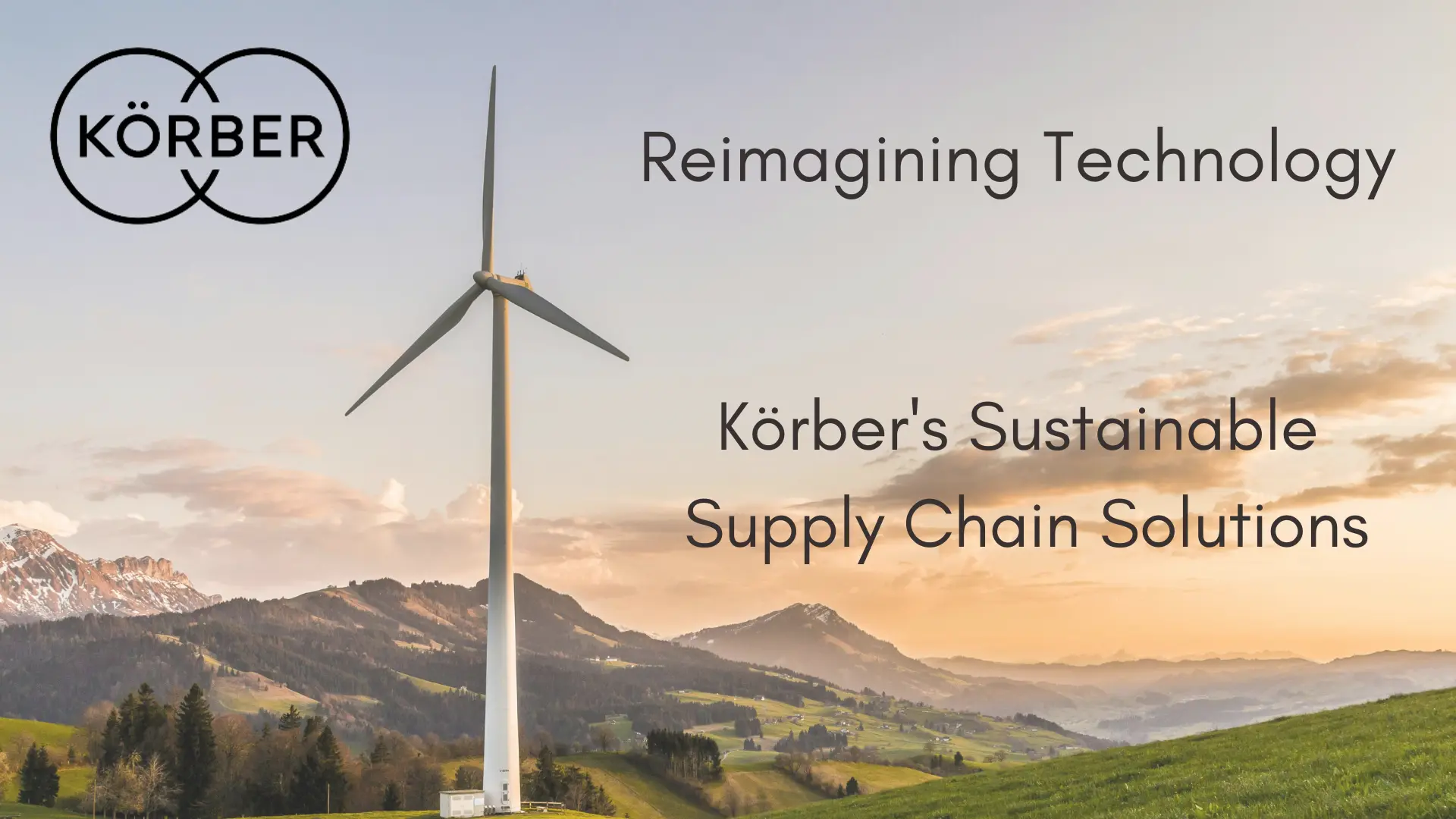The world is dynamic as ever, with technology paving the way. Change is inevitable, and we must embrace it with responsibility. Körber- a leading global technology group, has realized that sustainability, efficiency, environment, and technology are no longer separate ideas. Körber employs various advanced technologies to improve sustainability in supply chain management, focusing on enhancing efficiency, reducing waste, and advocating environmentally friendly practices throughout their operations. This blog explores the technologies used by Körber, putting them at the forefront of creating Sustainable Supply Chain Solutions.
Key Technologies:
1. Advanced Warehouse Management Systems (WMS):
Körber’s Warehouse Management System (WMS), such as the K.Motion WMS, integrates with enterprise resource planning (ERP) systems to optimize warehouse operations. This system enhances inventory management, reduces manual errors, and improves resource utilization. By enabling better tracking and management of products, it helps reduce waste and improve operational efficiency.
2. Automation and Robotics:
Automation technologies such as robotics are essential in Körber’s supply chain solutions. These technologies streamline operations, reduce manual labor, and improve accuracy and efficiency. Automation also results in lower energy consumption, minimizes errors, and contributes to more sustainable warehouse operations.
3. Artificial Intelligence (AI) and Machine Learning:
Körber uses AI and machine learning to analyze large volumes of data and optimize supply chain processes. AI predicts demand, manages inventory levels, and optimizes routing and transportation, reducing emissions and improving resource management.
4. Cloud-Based Solutions:
Körber collaborates with technology companies such as Microsoft to provide cloud-based solutions. For example, the PAS-X Manufacturing Execution System (MES) has been revamped into a cloud-based solution to improve efficiency in pharmaceutical production. Cloud solutions decrease the necessity for physical infrastructure, reduce energy consumption, and offer adaptable and scalable systems that can adjust to evolving requirements.
5. IoT (Internet of Things) Sensors:
IoT sensors are used to monitor and manage different aspects of the supply chain in real-time. These sensors offer valuable data on environmental conditions, equipment performance, and inventory levels. Real-time monitoring assists in making informed decisions that reduce waste, enhance energy efficiency, and ensure optimal conditions for product storage and transport.
6. Blockchain Technology:
Blockchain technology ensures transparency and traceability in the supply chain by providing an immutable record of transactions. It helps track the origin and journey of products, which is crucial for ensuring compliance with sustainability standards and building trust with consumers and partners.
7. Eco-design Think Tanks:
Körber’s Eco-design think tanks engage employees in developing and optimizing products with a focus on sustainability. These initiatives encourage innovative design thinking to reduce environmental impact throughout the product lifecycle.
In conclusion, Körber’s integration of advanced technologies such as AI, IoT sensors, and cloud solutions demonstrates their commitment to sustainability in supply chain management. With initiatives aimed at achieving net-zero CO2 emissions by 2040, Körber sets a high standard for environmental responsibility. Their focus on efficient, transparent, and resilient operations ensures they remain a leader in driving sustainable industrial practices.
Please reach out to Tychons if you need help with identifying the right Korber solution for your business practice.

